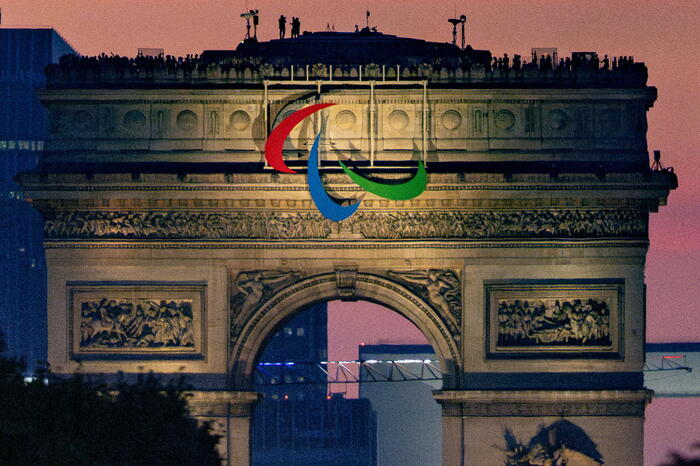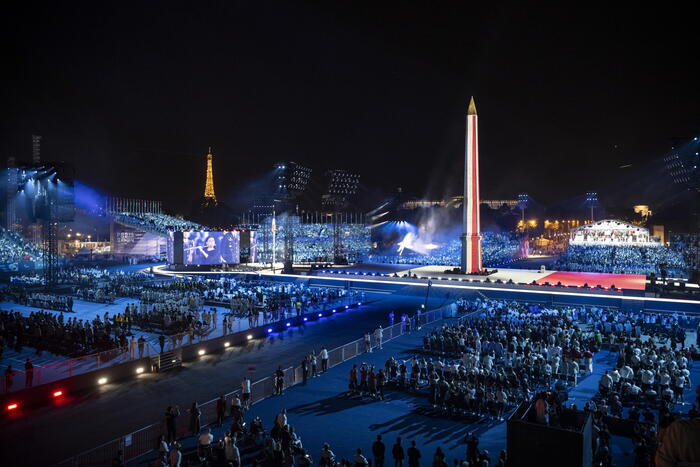With the final echoes of the Paris Olympics still hanging in the air, the French capital turned its gaze to a new chapter—the Paralympics–whose opening ceremony was, much like its immediate predecessor, held amidst the grandeur of the city’s streets.
Under the soft glow of evening lights, the parade of athletes kicked off at the base of the Champs-Élysées, winding its way towards the majestic Place de la Concorde. It was a sight to behold—168 delegations stepping into the heart of Paris, their journey flanked by 140 performers, including 16 with disabilities.
The ceremony brimmed with French flair, carried along by the soulful tunes of Edith Piaf’s “Non, je ne regrette rien,” brought to life by Christine and the Queens. The atmosphere swayed as Chilly Gonzales worked his magic on the piano, followed by Sébastien Tellier’s spellbinding rendition of “La Ritournelle.”
As the last notes lingered in the air, two of France’s finest Paralympians—Sandrine Martinet, a Para judo champion from Rio 2016, and Arnaud Assoumani, a long jump gold medalist from Beijing 2008—stepped up to take the Paralympic Oath. Their words echoed through the square, tying the past to the present, just as Olympian Florent Manaudou passed the torch to Paralympian Michaël Jérémiasz in a powerful reminder of the shared legacy between the Olympics and Paralympics.

Tony Estanguet, President of the Paris 2024 Organizing Committee, praised what he called the “Paralympic revolution,” urging everyone to shift their perspective, to see beyond the labels, and recognize the athletes for who they truly are—champions. “When the sport starts,” he said, “we won’t see disabilities; we’ll see you. We’ll see champions.”
Over the next 10 days, more than 4,400 athletes will throw themselves into competition, across 22 sports and 549 events, all while the world watches. When it all wraps up at the Stade de France, the world will have witnessed something more than a sporting event—it will have felt the pulse of humanity.











